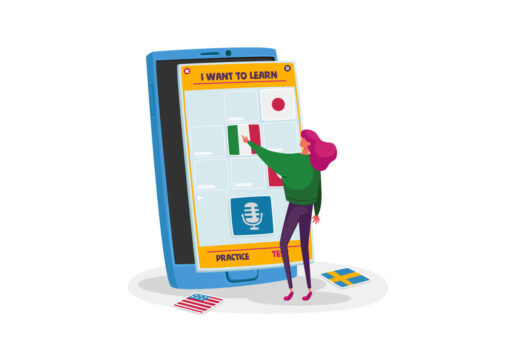Coronavirus and higher education: what are the long term impacts?

Online education isn’t a new story. The MOOC revolution happened a decade ago, with platforms like Udacity and Coursera springing up to offer e-learning to large numbers of people around the world – but adoption of this technology has been slower in higher education. Now, universities are being thrown headfirst into the digital world. While this huge technological and cultural shift presents tough challenges to institutions and educators, it’s also an opportunity to have a greater impact than ever: in April, Udacity signed up more students in one week than they did in the entire second half of 2019 (https://www.wired.com/story/education-is-human-thing-covid-19-will-push-online/).
The immediate impact of coronavirus on higher education is clear to see, but what will the long-term impacts be? When the virus is under control, will universities largely revert to the way things were before – perhaps with slightly more e-learning woven into traditional course structures – or will higher education courses be fundamentally and irrevocably changed, with e-learning at their very heart?

Professors have had to adapt quickly to delivering lectures using video conferencing platforms, and this has presented its own difficulties, from unreliable internet connections to the worry students won’t be as motivated to turn up to an online lecture. But as universities invest more in their digital strategies, will lectures as we know them be superseded by the more flexible, personalised modes of learning made possible by technology? Udacity co-founder Sebastian Thurn compares lectures to films: while the first films were simply recorded stage plays, they evolved to become a new medium in their own right. In the same way, digital education should be more than just recorded lectures.
With e-learning, students could be working on digital projects at their own pace, solving problems and getting hands-on experience, playing games and answering quizzes, receiving real-time feedback on their progress. Analytics could be used to improve courses as they’re running, identifying the precise points at which students lose engagement or struggle with the content. Artificial intelligence could be used to personalise courses to individual students’ needs, for example recommending areas where they need to recap their knowledge. Students who wouldn’t normally be able to attend university will have a wide range of high-quality, accessible courses at their fingertips, and the diversity of viewpoints this provides will benefit all students.
But we can’t assume everything is made better by technology, or ignore the challenges and barriers presented by this sudden shift to e-learning. Firstly, there’s the digital divide: while online education democratises learning to an extent, not every student has access to high-speed internet or even a safe home. For some students, campus is a safe haven (https://www.digitaltrends.com/news/coronavirus-university-online-classes-disparities/?itm_medium=editors). And while e-learning can be personalised, it doesn’t always feel personal. Students commonly cite the lack of in-person social interaction as a downside of e-learning. Platforms can offer message boards, chat bots and interaction with tutors, but can this ever be the same as meeting fellow students in person? Another issue is that some practical skills – for example, lab work as part of science courses – are best taught in person. How can that experience be replicated online? No doubt these aspects will improve as the technology does, but it will require thinking outside the box as well as commitment to investing in new technology.

While tech-savvy students may adapt easily to e-learning, universities are places of tradition, and professors may face a bigger challenge. Moving a course online – not to mention making it fully interactive by adding quizzes, games and videos – involves a lot of time, money and expertise. Universities will need to invest in digital skills training for staff, and EdTech start-ups will play a key role in working alongside universities. Finally, there’s the prestige question: will an online degree ever be considered as reputable as one gained on-campus? This has historically been one of the greatest barriers to the adoption of e-learning, but the necessity of moving online may shift these perceptions. To aid this, it’s important for online courses to be as academically rigorous as they are technologically innovative. Features such as interactive games should not just be gimmicks, but designed to maximise the learning experience, making it as engaging and challenging as possible.

It seems unlikely that the higher education system will return to ‘business as usual’ when the coronavirus pandemic has passed. As Jeff Maggioncalda, CEO of Coursera, says: “I don’t think higher ed will ever be the same… this will cause every college and university to think, “what is our digital strategy, for real?”’ (https://www.digitaltrends.com/news/online-education-innovation-coronavirus/). We hope the glimpse into the possibilities of e-learning provided by our current situation will inspire universities to tackle and overcome the challenges of learning in a digital world.
Other articles

6th Oct, 2021
Blended learning for languages can boost student engagement
Blended Learning: What Is It? As the name suggests, blended learning blends different learning methods. Essentially, blended learning combines traditional in-classroom teaching/learning with technology-based self-study outside of the classroom. The second part of the blended learning approach, the technology-based e-learning component, can offer real support for language learning. The internet has a wealth of resources, […]

13th Sep, 2021
ESTU + Studious - new partnership!
We are delighted to announce Estu+Studious: a new partnership with ESTU as part of our new corporate services development. Working with Simon Littlewood and Karl Eddy of Estu, Studious will deliver tailored learning solutions available for use in Apprenticeship Levy schemes to major corporations. The content delivered by Studious will be suitable for Learning […]

4th Aug, 2021
Tone of voice: what is yours?
How to use the top brands’ comms tactic to engage students with your online educational content Fast forward to September 2021: after weeks spent preparing classes, creating activities, developing quizzes and choosing case studies, you still have more videos and microphones turned off during your online lecture than you would like. How can […]

